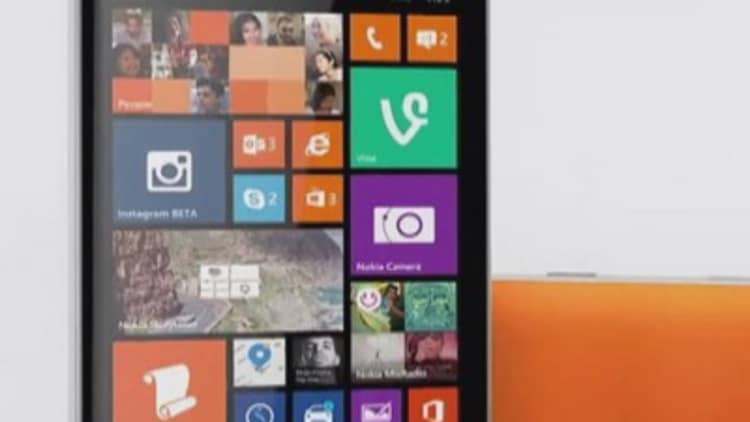
Just as Nokia reports a 30 percent decline in cellphone sales, Microsoft is taking the reins of that company's device business to refresh its Windows phone lineup, leaving Nokia to focus on its somewhat lesser-known businesses.
Under its new CEO, Rajeev Suri, Nokia will likely focus on its telecommunications network and in particular, notes CNET Senior Editor Bridget Carey.
Nokia has already relied on its network business for about 90 percent of its revenue.
The company first announced the planned sale of its device business, which brought in about $7.5 billion, in September.
"With all that money now maybe they'll acquire new businesses or new ventures, so it's kind of interesting to see what they could do with it, but definitely they'll be focusing, at least for the time being, on their network side," Carey said.
Read More Nokia unveils new CEO, starts new era with profit beat
As a cellphone maker, Nokia has been a distant competitor to Apple and Samsung. The challenge that Microsoft faces with a new device business, led by former Nokia CEO Stephen Elop, is to develop Windows Mobile phones appealing enough to draw consumers away from Apple and Android, Carey said.
"Elop used to work at Microsoft, so its kind of a homecoming," said Carey. "He's familiar with the ins and outs of Microsoft," and that could be a benefit, she said.
Read More Microsoft tackles Apple, Samsung with Nokia deal
Having Nokia's former leader at the top of Microsoft's device business doesn't necessarily mean the tech company's devices will be more of the same devices that Nokia has made, according to Carey. Recently appointed Microsoft CEO Satya Nadella is enough of a fresh perspective, Carey said.
One of the biggest benefits to Microsoft having its own devices arm is that the company will have the opportunity to develop a more cohesive business model in which software, hardware, business products and consumer products could potentially all work together more seamlessly, according to Carey.
—By CNBC's Althea Chang.


